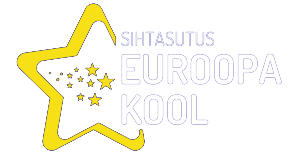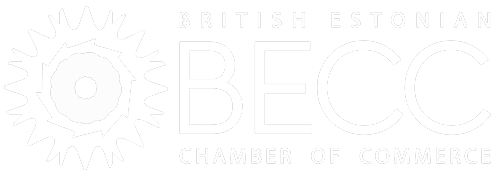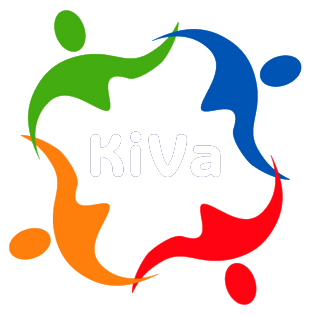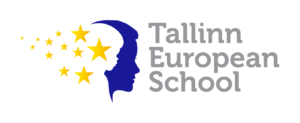Tallinn European School (TES), as part of a Network of European Schools, wants to prepare its students for their future. The future starts now and one of the core ingredients of our future is learning and sharing based on a common set of values. In parallel, the school has to prepare its students to master the challenges for their life after TES. Stefan Muennighoff, Father of 4 boys (of which 2 are currently at TES), has been involved at TES since 2019 in helping our students to understand and master the challenges when leaving TES and potentially joining a university. He also has been an active mentor to our students during and after the university application process.
TES: Stefan, why should our students listen to you?
Stefan: (laughing) Good question. First and foremost, they should listen to their parents and teachers. I help students to make better choices for their lives after TES. Because, let us face it, we all have been in the same position and little did we know. For most of us, the process was unclear, complicated and decisions often were taken based on what our parents thought, what seemed to be convenient or sounded somewhat familiar.
TES students are no different. While almost all students would like to go to university, only a few really know where to go and what to study. I grew up on a pig farm in Germany and, at age 15, thought that I probably become a pig farmer myself. Little did I know about universities. However, one teacher thought otherwise. For whatever reason, he started to mentor me, coach me, challenge me. I eventually did not become a farmer (although I like farming) but graduated with several degrees in business and economics from top institutions like Harvard University. And the rest is history…
Ever since, I believe it is my duty (and passion) to use my free time and help kids from all over the world to achieve their full potential.
TES: How do you compare TES students to other students?
Stefan: Being a student at TES is a privilege. Only few students have the possibility to study within a group of so many diverse cultural backgrounds but with a common set of values. In a way, TES is like Europe. Constantly evolving – never finished. Sometimes frustrating, imperfect but exciting and always new. Work in progress I would call it. Bienvenue en Europe.
TES students to me are like raw diamonds. Our job – both as parents and teachers – is to shape them. The (daily) life at TES can be quite hectic and challenging. TES students learn early on to communicate in different languages, with different cultures, and changing class structures. Sometimes it seems as if the only “constant” in their lives is “change”. TES prepares them well for what happens after TES. Students today have to be prepared to live and work in different countries, lead teams with diverse nationalities and “get operational” quickly. TES is a very good foundation for that.
TES: What is your advice to our students when thinking about universities?
Stefan: Students are usually surprised that university systems and requirements are quite different across the globe. They differ in length, costs, application process, selectivity and approach. For example, one of the fundamental differences between European- and US systems is that students have to chose a major in Europe before they commence while US universities give you the possibility to discover your future major during the undergraduate years. Also, many students are surprised that – at least for the most competitive universities – admission decisions are made before students will receive their final grades.
In general, I challenge my students to leave their comfort zone and have higher aspirations – while remaining with their feet on the ground. Over the years, I have seen extraordinary developments of students who took the chance and went the extra mile. Miracles can happen….
TES: Has the quality of TES students developed over time?
Stefan: I test my students on a regular basis with standardized tests. From my subjective perspective, I have seen TES students improving their scores quite significantly – especially in 2022. I also noticed that in senior secondary classes, the performance of students is more homogeneous compared to previous years.
So, the glass is “half-full”. As a potential employer of these students, I do value the international perspective, the cultural awareness and the ability to operate in different languages. However, at least equally important is the scientific background of the students. All sciences are moving closer to each other, and the accelerating factor is “technology”. Understanding and applying technology towards the integration of sciences is what will help our students to shape the next generation. This is an effort that needs to be reinforced by TES in the future – and what better place to do this then in Estonia?
TES: In your opinion, how has TES been developing over the last years?
Stefan: TES will celebrate its 10th year in 2023. What a journey. I believe that TES is in the middle of a transformation phase towards becoming one of the leading schools within the European School System – in the long(er) term. After moving to the new building in 2018, the school started to implement more structures and improved the overall compliance with the European School System. As a parent, I would like to see the school taking the advantages of being part of the European School System and combining it with the unique advantages of being in Estonia.
TES: Meaning?
Stefan: Europe can learn a lot from Estonia. The importance of education in Estonia is far above the average compared to other European countries. European business and political leaders are regularly visiting Estonia to understand how technology can accelerate and improve our daily lives and the overall performance of the economy. I have been living, working and studying in 17 different countries across the world. Estonia to me is a role model when it comes to how we integrate technology into our daily lives.
TES, being the largest international school in the Baltics, should continue to push this unique competitive advantage and integrate it into the curriculum while respecting the European School Principles.
TES: What is your message to our students?
Stefan: You will be surprised by what you can do and achieve in your life. Experiment. Challenge. Go further. Make mistakes. Learn. Adapt. And you will thrive. Selecting the right school and subject will have a major impact on the work you will do and ultimately will impact the life you live. You have one life – live it.
TES: Thank you, Stefan, for your time. We wish you the best of luck and are looking forward to seeing you soon at TES.


